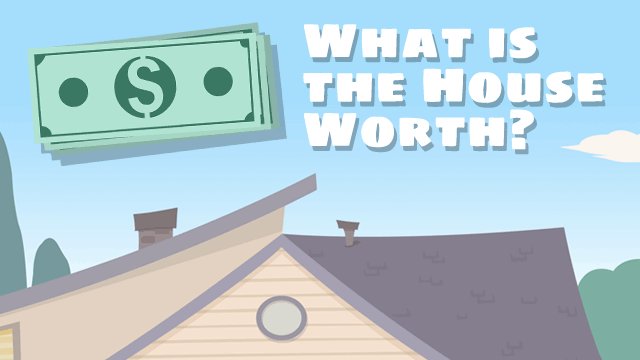When Your Dream Home Gets Appraised
May 19, 2025
Why does the FHA require certain property repairs before insuring a loan?
The FHA mandates specific property repairs primarily to protect borrowers from purchasing homes that are unsafe or might require substantial, unforeseen repairs shortly after they move in. This also helps protect the FHA's mortgage insurance fund from undue risk associated with properties that don't meet these basic living standards.
What aspects of a property does an FHA appraiser typically inspect?
During an FHA appraisal, the appraiser conducts a thorough visual inspection of the property. This includes its overall condition, the site itself, the exterior and foundation, the roof's condition, the interior spaces, and the functionality of essential systems such as plumbing, electrical, and heating. The appraiser specifically looks for any potential health or safety hazards, guided by official HUD handbooks.
What are some common property issues that might trigger FHA-required repairs?
Common issues that often lead to FHA-required repairs include significant structural problems like foundation cracks or settlement; roofing issues such as active leaks or a roof nearing the end of its life; safety hazards like exposed electrical wiring or an inadequate heating system; problems with plumbing or sanitation, including unsafe water supply; the presence of chipping or peeling lead-based paint in homes built before 1978.
What does it signify if an FHA appraisal report states a property is "subject to" repairs?
If an FHA appraisal report indicates that a property is "subject to" repairs, it means that the identified deficiencies must be corrected and brought up to FHA standards before the Federal Housing Administration will insure the mortgage. Finalizing the home purchase is contingent upon these repairs being satisfactorily completed.
When FHA-required repairs are identified, what is generally the most straightforward way to address them?
Often, the most direct path to resolving FHA-required repairs is for the seller of the property to agree to complete and pay for all the repairs specified by the FHA appraiser before the scheduled closing date. Once the work is done, a re-inspection is typically needed to confirm that the repairs meet FHA standards.
How are decisions about responsibility and payment for FHA-required repairs usually made?
Decisions regarding who is responsible for FHA-required repairs and who pays for them are primarily governed by the terms negotiated in the sales contract between the buyer and seller. This contract often outlines how such repair issues will be handled and may specify a limit to the seller's financial contribution towards these repairs. Ultimately, negotiation between the parties is key.
Are borrowers ever allowed to perform FHA-required repairs themselves?
It is highly uncommon and quite restricted for borrowers to perform FHA-mandated repairs themselves. This is especially true for repairs related to safety or structural elements, as FHA guidelines typically emphasize the need for professional workmanship and adherence to specific standards.
Does the FHA determine which party is responsible for paying for required repairs?
No, the Federal Housing Administration does not dictate who must pay for the FHA-required repairs. This is a matter to be negotiated between the buyer and the seller, and the resolution is customarily governed by the provisions outlined in their legally binding sales agreement.
Who typically bears the cost of FHA-mandated repairs in a home sale?
Frequently, sellers agree to cover the costs of FHA-mandated repairs as a way to facilitate the sale of their property. However, if a buyer utilizes an FHA 203(k) loan, the cost of the necessary repairs is incorporated into their mortgage amount, meaning the buyer ultimately assumes responsibility for repaying those costs. The final allocation of costs is usually the result of negotiation between the buyer and seller.
Is a Contingency Clause Needed?
An appraisal contingency clause within a sales contract may, when present, grants the buyer the right to terminate the agreement and receive a refund of their earnest money deposit if the property appraisal mandates repairs as a condition for loan approval, and if the buyer and seller cannot reach a mutual agreement on how those repairs will be managed and financed.

FHA Loan Articles
November 27, 2024If you are new to the home loan process, you may wonder how your loan officer will interpret your application data. How lenient is the lender with issues related to debt, credit utilization, and related factors? We examine some key points, but remember that what follows is not financial advice. Always consult a finance or tax professional for the most current information.
November 26, 2024
Thinking about buying a home? One of the first things you'll want to consider doing is filling out forms to be pre-approved for your FHA mortgage. This means a lender takes a look at your finances to figure out how much they're willing to loan you. It's a smart move, but you might be wondering: "Will applying for pre-approval hurt my credit score?"
November 25, 2024FHA mortgages include a refinance option that allows you to pull equity from your home in cash. The FHA cash-out refinance loan allows the borrower to take the difference between what remains to be paid on the home and the amount of equity built up.
The FHA loan program has some competition in this area, but how do your other government-backed refinance loan options measure up?
November 21, 2024The dream of homeownership is with some from a young age. But in an uncertain housing market, some grapple with the question: Is buying a home the right move for me?
While renting offers relocation flexibility and lower upfront costs, homeownership provides a wealth of financial and personal benefits.
November 20, 2024Refinancing your mortgage offers a way to cash in on your home equity, potentially reduce your interest rate, or modify your loan term. Borrowers ready to consider have options including FHA loans and conventional loans.
While both provide avenues for refinancing, each loan type may be best for specific needs and financial circumstances. What are the differences between FHA and conventional refinance options?







